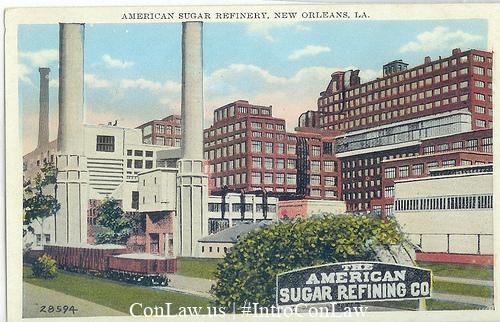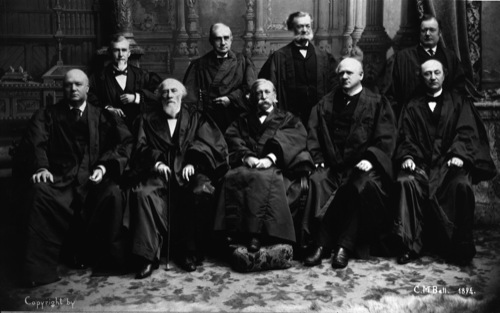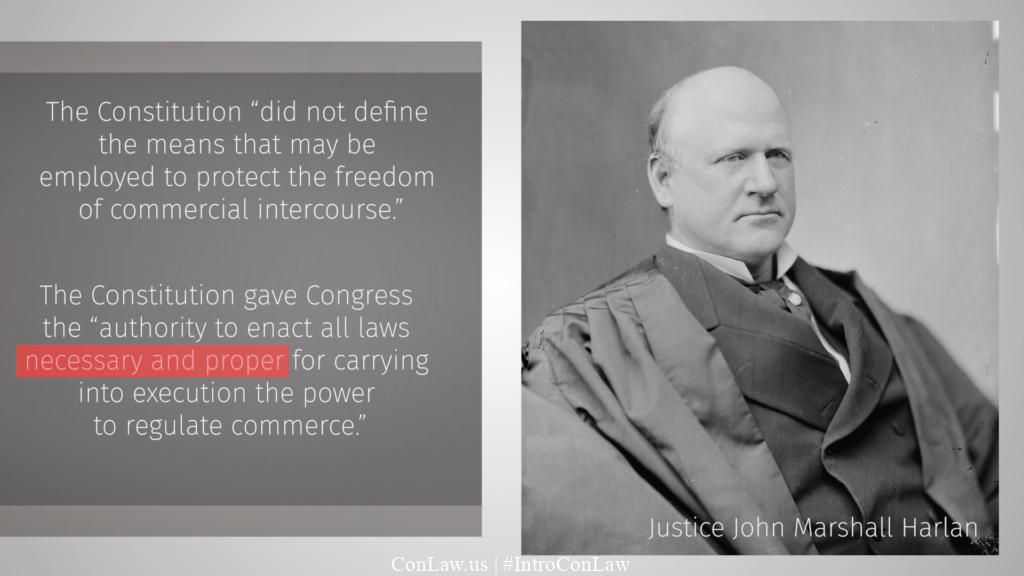
The American Sugar Refining Company purchased its competitors, including E.C. Knight.

The Fuller Court (1894-1895). Seated, from left to right: Justices Horace Gray, Stephen J. Field, and Chief Justice Melville Fuller, and Justices John Marshall Harlan and David J. Brewer. Standing, from left to right: Justices Howell E. Jackson, Henry Billings Brown, George Shiras, and Edward D. White.

U.S. v. E.C. Knight

“Commerce succeeds to manufacture, and is not a part of it.”

The Constitution “did not define the means that may be employed to protect the freedom of commercial intercourse.” Rather, it gave Congress the “authority to enact all laws necessary and proper for carrying into execution the power to regulate commerce.”

What are the ends, or goals, the government is trying to achieve? The “protection of trade and commerce among the States against unlawful restraints.” Harlan concludes the ends are legitimate. What means did the government choose? “Suppression of monopolies.” Are those means appropriate? Harlan says yes.

Implied Powers during the Progressive Era
The American Sugar Refining Company purchased its competitors, including E.C. Knight. The federal government charged that the new firm would monopolize the sugar market nationwide. The Supreme Court considered whether this prosecution under the Sherman Antitrust Act could be supported by Congress’s power to “regulate Commerce . . . among the several states,” together with its power “to make all Laws which shall be necessary and proper for carrying into Execution the foregoing Powers.”
The Supreme Court does not always explicitly consider both provisions. However, you should. Even in cases where the Court only discusses the Commerce Clause, the Necessary and Proper Clause is also working in the background.